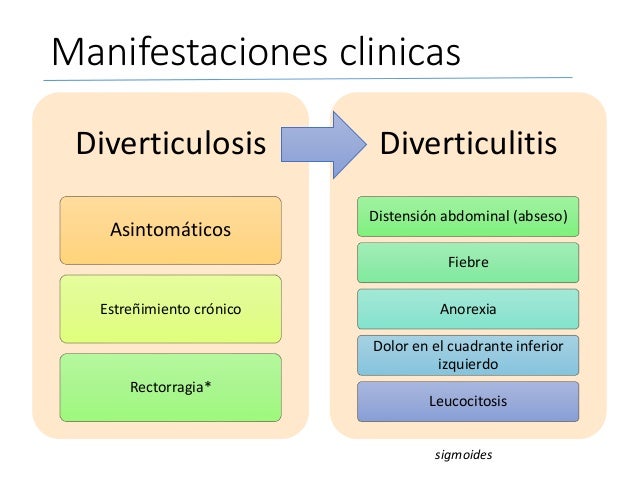Diverticulitis Demystified: A Guide to Effective Treatment

Diverticulitis, a painful condition characterized by inflamed pouches in the digestive system, can be a source of significant discomfort and disruption in one's life. While conventional treatments often focus on antibiotics and surgery, many individuals seek alternative, natural remedies to alleviate symptoms and promote healing. In this article, we will explore some effective ways to address diverticulitis using natural methods and lifestyle changes. By understanding the underlying causes of this condition and utilizing targeted approaches, individuals can find relief and regain control over their digestive health. So, if you're looking for natural help to manage diverticulitis, read on to discover valuable insights and strategies that can make a positive difference in your well-being.
1. Dietary Modifications
Increase Fiber Intake: One of the key dietary changes to consider when managing diverticulitis is to increase your fiber intake. Consuming a diet rich in fiber can help regulate bowel movements and promote overall digestive health. Good sources of dietary fiber include fruits, vegetables, whole grains, and legumes. Adding these foods to your daily meals can provide the necessary bulk to prevent constipation and promote regular bowel movements.

Stay Hydrated: In addition to boosting your fiber intake, it's important to stay adequately hydrated. Drinking plenty of water throughout the day can help soften stools and make them easier to pass, reducing the likelihood of flare-ups associated with diverticulitis. Aim to drink at least 8 cups of water daily and avoid excessive caffeine and alcohol consumption, as they can contribute to dehydration.
Limit Processed Foods: Another dietary modification to consider is reducing the consumption of processed foods. These foods are often low in fiber and high in unhealthy fats, which can worsen diverticulitis symptoms. Instead, opt for fresh, whole foods that are easily digestible and contain higher amounts of essential nutrients. Minimize your intake of foods such as fast food, packaged snacks, and sugary drinks, as they can aggravate inflammation in the digestive system.
Remember, making gradual dietary modifications and consulting with a healthcare professional or registered dietitian can help ensure you find the most suitable approach for managing diverticulitis naturally. By adopting a fiber-rich diet, staying hydrated, and limiting processed foods, you can provide your body with the support it needs to effectively treat and prevent diverticulitis flare-ups. ###2. Herbal Remedies
Aloe Vera: Aloe vera has been used for centuries as a natural remedy for various health conditions, including diverticulitis. This soothing plant contains anti-inflammatory properties that can help reduce inflammation and discomfort associated with the condition. Aloe vera can be consumed as a juice or applied topically to the affected area to provide relief.
Slippery Elm: Slippery elm is another herbal remedy that can be beneficial in treating diverticulitis. It has a mucilaginous nature, which means it forms a protective and soothing layer over the intestines. diverticulosis can help alleviate symptoms such as abdominal pain and inflammation. Slippery elm can be consumed in the form of a tea or taken as a supplement.
Peppermint: Peppermint has long been used to support digestive health and can be effective in managing diverticulitis symptoms. It contains menthol, which has anti-inflammatory properties and can help relax the muscles in the digestive tract. Peppermint tea or capsules are commonly used to alleviate abdominal pain and bloating associated with diverticulitis.
Remember, while herbal remedies may offer relief for diverticulitis symptoms, it is important to consult with a healthcare professional before incorporating them into your treatment plan. They can provide guidance on the appropriate dosage and potential interactions with any other medications you may be taking.
3. Lifestyle Changes
Healthy Diet: Maintaining a healthy diet is essential for managing diverticulitis naturally. Ensure your meals are rich in fiber, including fresh fruits, vegetables, whole grains, and legumes. These fibrous foods help regulate bowel movements and prevent constipation, reducing the risk of diverticula inflammation.
Hydration: Staying hydrated is crucial for preventing diverticulitis flare-ups. Aim to drink an adequate amount of water throughout the day, as this helps soften stools and promotes regular bowel movements. Avoid excessive caffeine and alcohol intake, as they can dehydrate the body and potentially worsen symptoms.
Regular Exercise: Engaging in regular physical activity can contribute to better digestive health and reduce the risk of diverticulitis episodes. Incorporate moderate exercises, such as brisk walking, swimming, or cycling, into your routine. Consult with your healthcare provider before starting any new exercise program.
Remember, making these lifestyle changes alongside prescribed medical treatments can greatly improve your overall well-being and help manage diverticulitis effectively.
